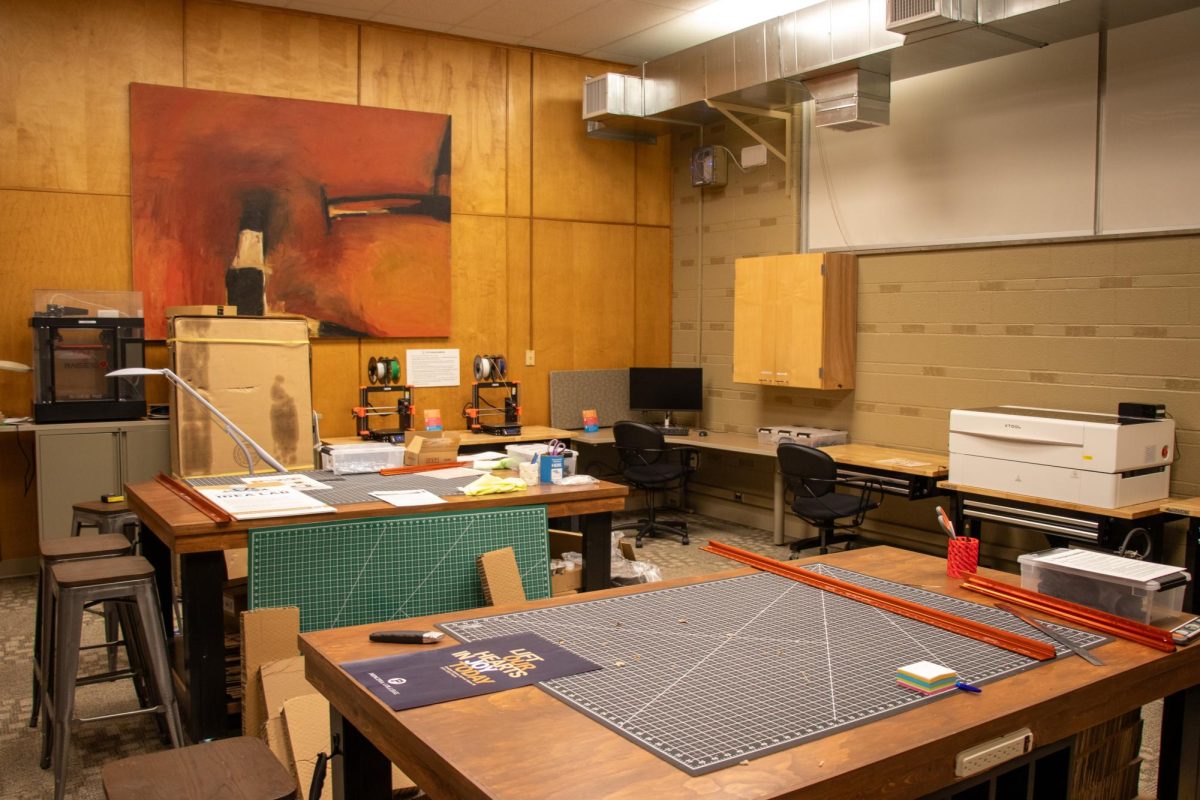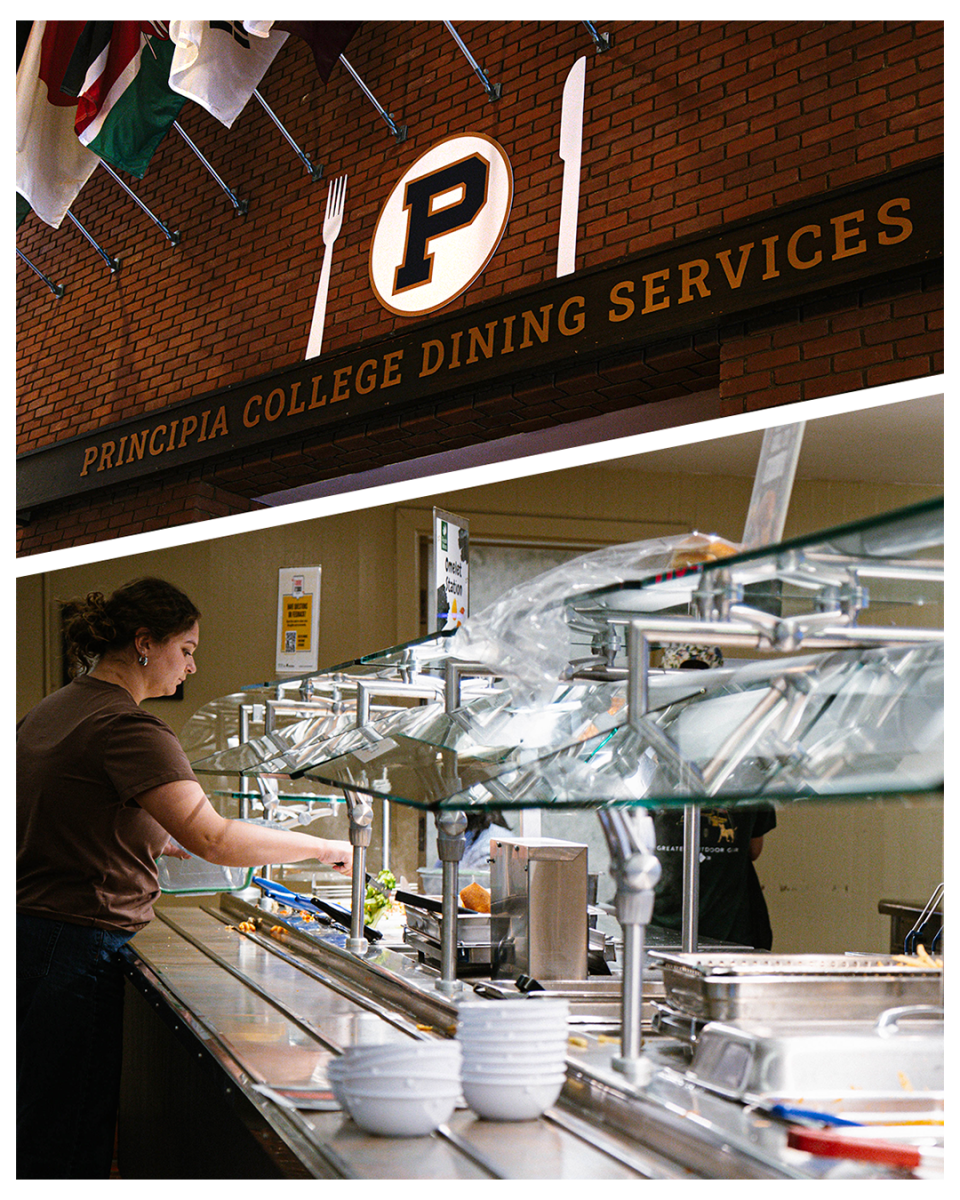During the past year at Principia College, the academic administration has been working to implement a new curriculum. This “reimagination,” as it’s known, has reformed majors into five multidisciplinary centers from which new students can choose from: The Center for Arts and Creative Engagement, The Center for Civic and Global Engagement, The Center for Innovation and Technology, The Center for Narrative, Meaning, and Media, and The Center for Sustainability and Ecology.
While one of the goals of the new process is to help departments bring a more collaborative academic approach, some programs were discontinued as a result. One of those programs was engineering.
Although the reimagination process worried previously enrolled students that were engineering majors, the administration assured that a teach-out plan will be established for the students who have already declared majors and minors.
Luigi Furlan, a sophomore civil engineering major, said engineering students first heard of the discontinuation of engineering from the email sent out to the entire college by Interim Dean of Academics Brian Roberts. Upon discovering the program cut, Furlan, along with some 20 other engineering students, sent an email to faculty to set up a meeting with Roberts about questions and concerns the engineering students had about the discontinuation of their program.
Furlan said he was disappointed with what he called inadequate communication he received from the administration on behalf of the reimagination.
“Prin is changing more and more into a communication strategy that mimics those of corporations,” Furlan said. “The fact that they told us these [the discontinuation of majors/minors] changes on a Friday when none of them were working anymore seems unprofessional to me… Why do they think it’s okay for them to tell us about all of these changes when we don’t have the chance to ask about these changes because they were off duty?”
Unlike most majors that require four years of schooling, the engineering program requires students to stay five years in order to complete all the facets of their degree. Furlan said when he arrived at Principia, faculty promised engineering students that they would be able to renew their financial aid for their fifth year. Now, he said, the administration claims that this renewal would fall under the new rules of financial aid, which are substantially more expensive than before the reimagination.
Originally, Principia’s engineering degree held a two-three year program wherein students would preside at Principia for three years for their engineering degree, and the remaining two years at a different college. Since the majority of students were not interested in going to other colleges, the engineering department had to come up with a solution for this predicament. Joe Ritter, the previous dean, researched other programs and founded an official partnership with University of North Dakota, which offered remote courses where students could earn a degree in a particular discipline of engineering while also earning their degree at Principia. From the student’s perspective, their tuition was being paid directly to Principia as an institution, but the college was responsible for paying for the majority of the University of North Dakota classes, enabling engineering students at Principia College to simultaneously enroll in University of North Dakota for remote courses to make up for any classes not offered on campus.
While this was a strong model, it was an expensive one for Principia as an institution to pay for these additional courses. In response, Dr. Marie Farson, head of the Engineering department, started developing an in-house engineering program, which was recently put into place. Despite this, many students still opted to pursue their degree through the specific disciplines of the North Dakota programs in addition to their Principia engineering degree.
Still, the new in-house program was in the process of being accredited by ABET (Accreditation Board for Engineering and Technology), an extensive process of fine-combing through Principia’s engineering program. With the reimagination process that was about to take place, ABET suggested that the engineering program reapply once the reimagination had taken place, as there would be differences in the program.
During the reimagination process Farson was on sabbatical, and unable to physically plead her case for her department, according to faculty. Therefore, a faculty member who is not a member of the engineering department was the one to present Farson’s program ideas to the Board, she said. Farson said she feels the program was not adequately represented. Farson said she was also concerned that the faculty groups created to aid the process of the reimagination did not include faculty from the physical sciences, which made the process seem inequitable, she said. The Pilot did not independently verify this.
“I think the engineering program … is a good program to have,” Furlan said, “for STEM because it is so comprehensive of all disciplines in STEM.” Farson said the nature of the engineering program is multi-disciplinary, pulling from many different science courses, as only 45 of the 85 semester hours required of the program are engineering based.
“Majors that lead to jobs and income are highly recruitive; that is engineering,” Farson said. Still, while there are many disagreements about the reimagination, Farson said she is grateful for the support that administration has given to students. “I’m really grateful that Prin cares for the students as well, they are doing the very best to make sure that they [graduate],” she said.
Principia College’s Engineering Science program began in fall 2015, according to the school. In 2019 the first cohort of students graduated from the program.




